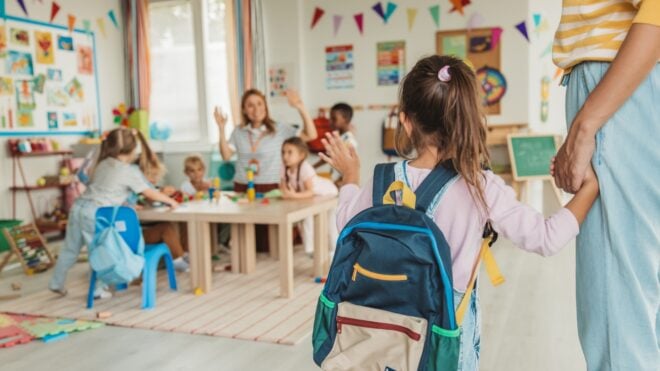
Let me say this right up front: if your millennial child is pulling away, not calling as much, or, worst-case scenario, cutting contact entirely, it’s probably NOT because millennials are “ungrateful.” I know it’s easy to think that. As a mom of two, I’ve certainly thought it myself.
But a viral video I recently saw helped change my mind and helped me realize that guilt-based parenting, even when it comes from a place of love, can slowly push our kids out of our lives.
Becca created a video on the topic that’s currently sitting at 10.7 MILLION views on TikTok.
Becca (@reallybecca_) pointed out that so many millennials grew up with parents who, instead of truly hearing their kids out when they were hurt, defaulted to self-victimization.
The kid says, “That really upset me,” and instead of processing it, the parent replies with something like, “Well, I guess I’m just the worst parent in the world,” or “After all I’ve done for you?” Sound familiar? It does to me.
It’s an instinct, really.
We want to remind them how much we’ve sacrificed, how hard we’ve worked, and how much we love them. But what they hear is: “Your feelings don’t matter as much as my feelings.” And that’s where the disconnect starts.
When our kids feel like their pain is being minimized or flipped into something about our own suffering, they stop coming to us.
They stop sharing their struggles, thoughts, and dreams because they’ve learned that opening up might just trigger a guilt trip instead of a conversation.
@reallybecca_ oop #millennialsoftiktok #nocontact #nocontactchild #oldestdaughter #momtok #fyp ♬ original sound – Becca ✨
Over time, that guilt builds a wall that prevents them from coming to us at all.
Parenting experts have begun taking a closer look at this. According to Precision Family Therapy, growing up in a guilt-based parenting household can leave lasting emotional scars, as children often internalize thoughts that they are somehow flawed.
This can lead to patterns of rebellion, overachievement, or withdrawal, along with attachment issues and difficulties forming healthy relationships in adulthood. Most importantly, these parenting practices can stunt open communication, leading to low self-esteem and the urge to pull away from the family unit.
Guilt trips can also chip away at a child’s confidence and self-worth.
If we constantly imply they should “know better” or that they’ve “let us down,” we risk making them feel like they can’t ever measure up. Eventually, they’ll either shut down or shut us out.
And here’s the kicker: guilt-based parenting often comes from our own upbringing. Many of us were raised by parents who leaned on shame and guilt to keep us in line. It felt normal, so we repeated the pattern without even realizing it.
But our kids, especially millennials, are more likely to call it out and set boundaries to protect themselves. They’re not trying to be cruel. They’re trying to break the cycle because they’re becoming more empowered.
So, what’s the alternative?
We can start by shifting from guilt to guidance. Instead of making them feel bad for a mistake, focus on how they can make it right. Replace “I can’t believe you did that after everything I do for you” with “Okay, let’s figure out how you can fix this.”
Because here’s the truth I’ve had to face: kids don’t remember every meal we cooked or every ride we gave. They remember how we made them feel when they were at their most vulnerable.
If we want to stay close to them as adults, we have to make sure those memories are built on compassion, not guilt.




